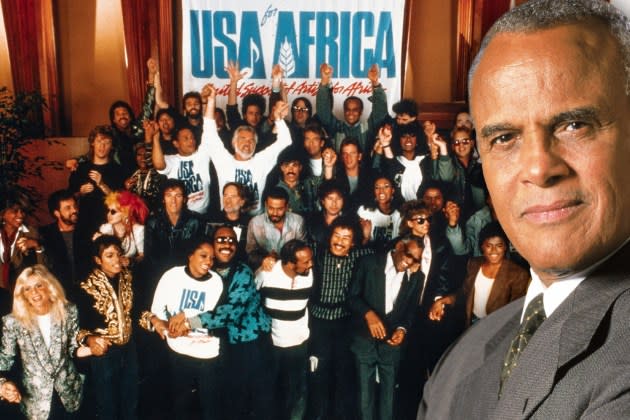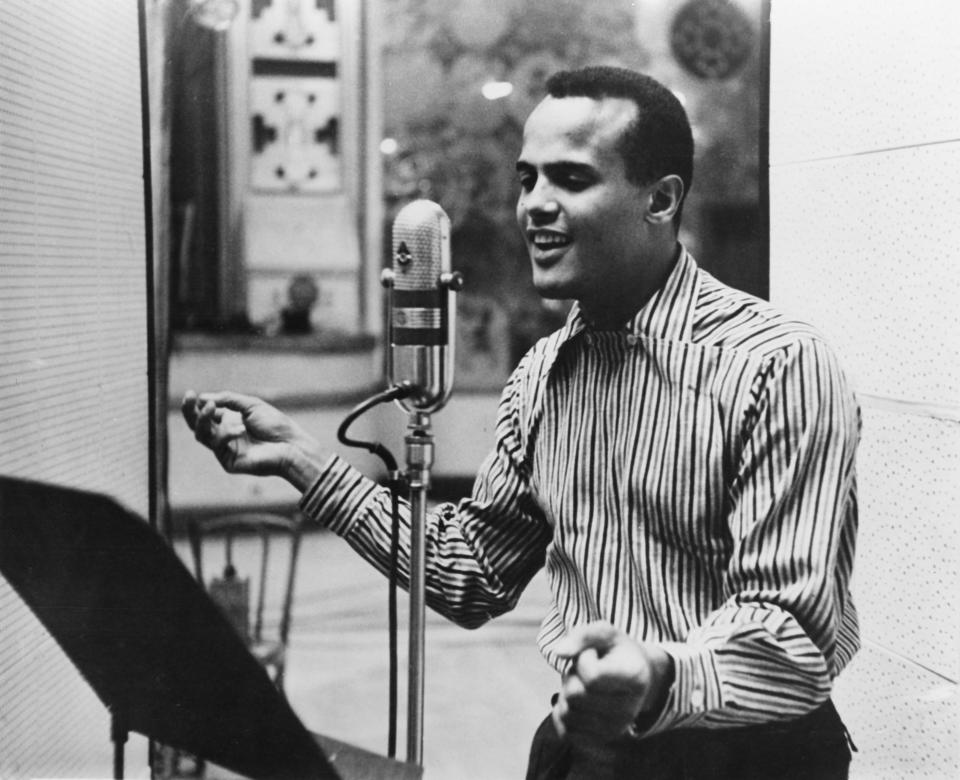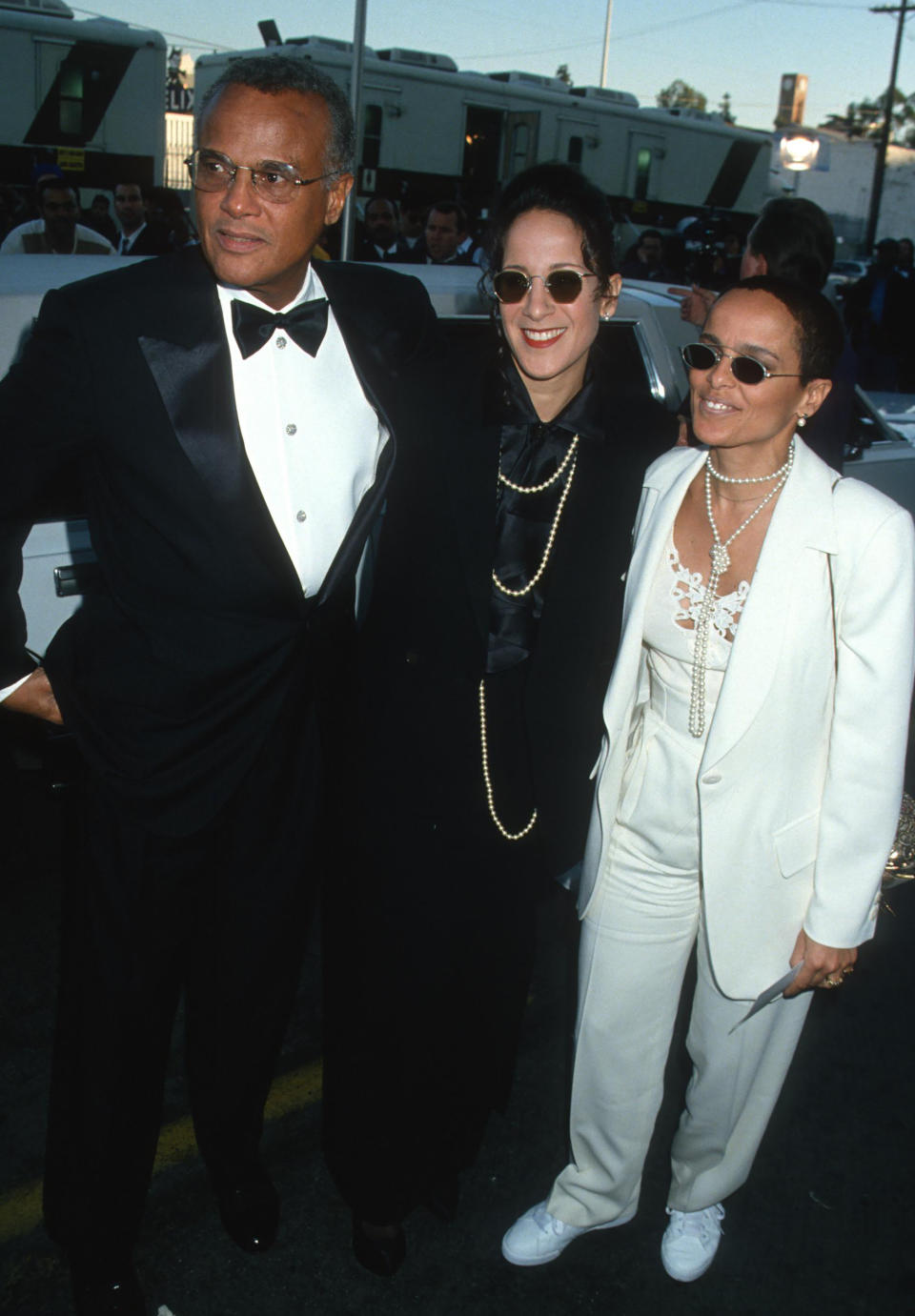Shari Belafonte: What The Grammys Missed By Omitting Harry Belafonte From A Special Tribute Alongside Tina Turner & Tony Bennett
- Oops!Something went wrong.Please try again later.
- Oops!Something went wrong.Please try again later.
- Oops!Something went wrong.Please try again later.

Editor’s note: If you have watched the Netflix docu The Greatest Night in Pop, you saw the 40 biggest singers of the ’80s break into a spontaneous chorus of “Day-O” in tribute to Harry Belafonte for organizing the “We Are the World” global fundraiser that raised over $60 million to save starving, famine-stricken African families. So you understand why the late singer/activist/actor’s daughters were disappointed when an In Memoriam segment on the Grammys flashed his photo but omitted him from a special section honoring the giants. Here, daughter Shari reminds why her father meant so much to the world, and music.
RELATED: Harry Belafonte Dies: Actor, Singer & Civil Rights Icon Was 96
More from Deadline
Being a woman of color and having been in the entertainment business literally ALL of my life, I’ve witnessed and have been exposed to many instances of what one would call “unjustified treatment.” But, don’t think this is a new missive, nor is it about ME.
Most of the time, I watch the pertinent award shows. Occasionally, I’m even asked to participate. I’m even nominated along with my fellow cast members in the category of Best Ensemble for one this year [Eds note: a SAG Award nom for Apple TV+’s The Morning Show]. Very excited about that.
But this award season is interesting because of the union strikes. The award shows moved around in order to accommodate many of those who would be nominated and because, let’s face it, it would’ve been inappropriate to celebrate our artistic achievements while promoting studios we were in the battle of our lives against, to get a justified contract that would, should and could honor artists the way they should be honored. And now that we have a great contract, we’re scrambling to get back on track. Award shows are part of that startup.
RELATED: 2024 Awards Season Calendar – Dates For Oscars, Guilds, BAFTAs, Tonys & More
The Golden Globes had some ups and downs, but for the most part was enjoyable. Oscars are around the corner, as are the SAG Awards. Anticipatory, to say the least.
But the Grammys were truly the first of the award shows that I think had enough time to be properly produced. The talent was boundless. The acceptance speeches, from the heart. Then came the “In Memoriam” segment that I know SO many of us were preparing the tissue box for.
So many talented, wonderful people left us this past year. But to me, the standout obviously would be my father, Harry Belafonte.
RELATED: Hollywood & Media Deaths In 2023: Photo Gallery & Obituaries
There have been numerous homages made to Harry since his passing in April of last year. There will be many more. But the one you would immediately imagine to be grand would’ve been the one the Grammys would have done. And yet, a two-second picture of him on the screen was all that was allotted.
Now don’t get me wrong. While the folks who had a bit more of a shout-out this year were absolutely deserving of the accolades, I’m a bit appalled that Harry was not included in a “Special Tribute” section. And I’m not just saying that because he was my father.

Harry Belafonte was the very FIRST recipient of ANY color to receive a Platinum record. He was the very FIRST Black man to win an Emmy. Is one of fewer than 20 people to get the coveted EGOT (Emmy, Grammy Oscar, Tony), not to mention numerous Grammys, including a Lifetime Achievement Award. He was just recently inducted to the Rock and Roll Hall of Fame and was a Kennedy Center Honoree; and so many other accolades.
RELATED: Deadline’s Full Coverage Of The 2024 Grammy Awards
Harry is the one who created #WeAreTheWorld, and yes, I was at the table when he first pitched the idea to Ken Kragen. The three of us were dining at a little place on Melrose Place, and Harry handed me a napkin and said “Take notes.” He proceeded with who he wanted to participate. Madonna’s name came up first. Then Barbra Streisand. Then Michael Jackson. I thought the man was crazy, had finally gone off the deep end, thinking he’d be able to wrangle these folks into the same room at the same time. Ken made a comment saying, “If we get Diana [Ross], we might have a shot at Michael.” Now, I thought, “They’re both wacko.” We finished dinner and went over to Lionel Richie’s house. Lionel played a couple of tunes he was working on, but they weren’t quite there yet, and I was sure this idea would be an epic failure. Then Lionel said, “Lets get Q [Quincy Jones] on the phone,” and the rest is history. The Greatest Night in Pop on Netflix right now left out a few tidbits. I wish they had known to come to me, having been at that very first face-to-face conversation between Harry and Ken, and then Lionel.
Harry gave a platform to so many international artists, such as Odetta, Miriam Makeba and Nana Mouskouri, and performed around the world to sold-out houses. Germany, Japan. Harry was the one that opened the eyes of audiences and brought attention to the world of hip-hop with the movie Beat Street. He was the one that convinced Fidel Castro to let young Cuban artists have a chance to share their rap culture outside of the hidden underground in Cuba.

But, utilizing his stage and captured audience, he went far beyond the music scene to express what he felt was important. He was the one who pulled the first $60,000 (the equivalent of over a half-million in today’s dollars) out of his pocket to fund the start-up costs for the civil rights movement and reached out to Tony Bennett, Charlton Heston, Paul Newman, Marlon Brando and many, many others to become a part of the March on Washington. He was the one who got Bobby Kennedy and John Kennedy to reach across the table to Martin Luther King Jr. He is the one that created Artists and Athletes Against Apartheid, bringing light to the plight of apartheid and the incarceration of Nelson Mandela in South Africa. He was the ambassador to UNICEF for well over 30 years and received accolades from around the world — not just for participating but for starting movements for the betterment of humanity. His Presidential Medal of the Arts award and his Legion of Honor award from France should confirm that.
While no doubt Tony Bennett, Tina Turner and others were special indeed and deserved a spotlight on the Grammys, I believe the Grammys also missed an opportunity to remind the world that there was another great artist and humanitarian. But he was sadly overlooked … as so many people of color still are.
Sign up for Deadline's Newsletter. For the latest news, follow us on Facebook, Twitter, and Instagram.

